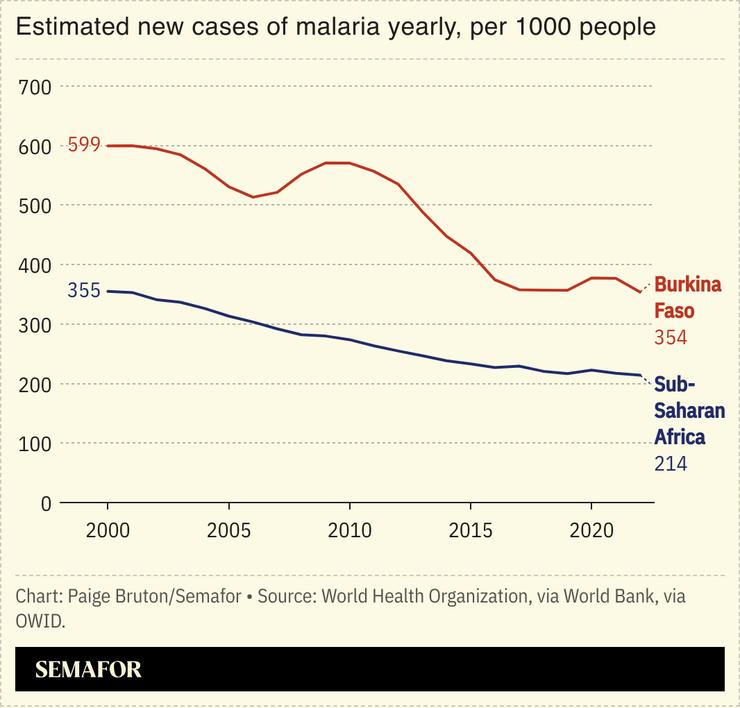The News
Target Malaria, a major research program backed by the Gates Foundation, has been shut down by the Burkina Faso government after a campaign by local anti-Western activists.
The campaigners claimed the program was a danger to the West African country’s health sovereignty and expressed “joy” at the news that regulators formally shut the program down on Aug. 22 after recent inspections of its facilities.
Anti-Western sentiment has taken hold under the nearly three-year old junta of Burkinabe leader Ibrahim Traoré. His military government has cut ties with former colonial ruler France and forged closer ties with Russia.
Target Malaria’s Burkina Faso team of around 45 people is headed by award-winning scientist Professor Abdoulaye Diabaté. The focus of the program’s work has been eliminating malaria by editing the genetic makeup of male mosquitoes and releasing them in the wild to prevent the reproduction of female mosquito species that transmit malaria.
A Burkinabe government statement did not clarify the reasons for shutting down facilities containing genetically modified mosquitoes, but said “all samples will be destroyed.”
Know More

Target Malaria, which also operates in Ghana and Uganda on the continent, has received the majority of its $173 million funding from the Gates Foundation since it was started in 2005.
The Gates Foundation was not immediately available for comment.
In a statement, Target Malaria said it was “proud” of its work in Burkina Faso since 2012, and cited “significant scientific milestones” by working with trusting local communities to boost African malaria research.
Malaria kills nearly 600,000 people every year, most of whom are children in Africa.
Step Back
In an April 2024 interview with Semafor, Diabaté explained Target Malaria’s approach while acknowledging that eliminating malaria in Africa would be “a difficult and long process.”
A relatively small release of modified mosquitoes would be able to spread within a population and induce suppression of the disease, he said. “It allows targeting a large area in a cost effective and self-sustaining manner, reaching areas that are difficult to control with conventional methods.”
Notable
- Burkina Faso’s leader is seeking ‘exponential’ growth in its ties with Russia by pushing for stronger trade and tech cooperation.
- Burkina Faso’s junta has expelled the UN’s top official to the West African nation over a report about children caught up in the jihadist conflict.
- Ugandan scientist Krystal Birungi explains how Target Malaria’s gene drive technology works and will make a difference in her country and other African nations to take on malaria.




